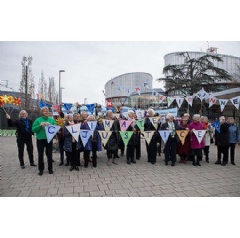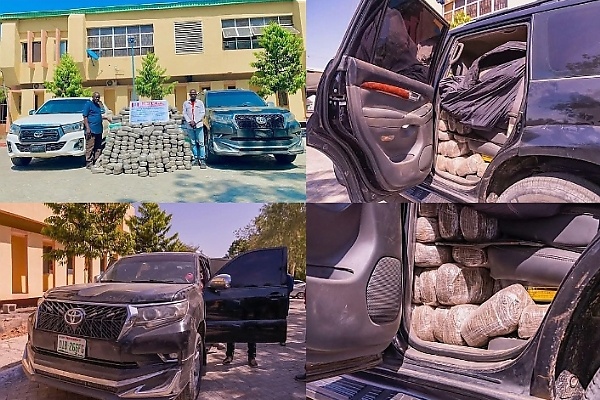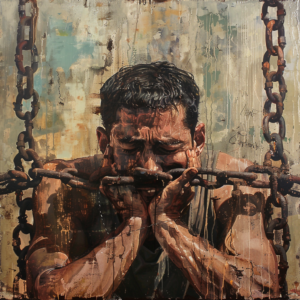No products in the cart.
UNVEILING THE SCOURGE OF HUMAN TRAFFICKING: A GLOBAL EPIDEMIC

Human trafficking, often referred to as modern-day slavery, is a heinous crime that deprives millions of individuals worldwide of their basic human rights and dignity. From forced labor and sexual exploitation to organ trafficking and child soldiers, this clandestine industry preys on the vulnerable and marginalized, profiting from their suffering. Despite international efforts to combat trafficking, the clandestine nature of the trade presents significant challenges in eradicating this global epidemic.
The Scope of Human Trafficking: A Hidden Crisis
Human trafficking encompasses a wide range of exploitative practices, including forced labor, sex trafficking, child exploitation, and forced marriage. According to the International Labour Organization (ILO), an estimated 25 million people are victims of forced labor globally, with women and girls disproportionately affected. The clandestine nature of trafficking makes it difficult to ascertain the true scale of the problem, with many cases going unreported or undetected.
The Drivers Behind Human Trafficking: Understanding Root Causes
Various factors contribute to the perpetuation of human trafficking, including poverty, inequality, conflict, and lack of education. Vulnerable populations, including migrants, refugees, and marginalized communities, are particularly susceptible to exploitation. Economic desperation, coupled with deceptive recruitment tactics and false promises of a better life, lure individuals into the clutches of traffickers, trapping them in cycles of exploitation and abuse.
The Forms of Human Trafficking: Unveiling Disturbing Realities
Human trafficking manifests in diverse forms across different regions and industries. In labor trafficking, individuals are coerced, deceived, or forced into exploitative work conditions, often in sectors such as agriculture, construction, domestic servitude, and manufacturing. Sex trafficking involves the exploitation of individuals through force, fraud, or coercion for commercial sex acts, including prostitution, pornography, and sexual servitude. Additionally, children are particularly vulnerable to trafficking for purposes of forced labor, sexual exploitation, child soldiers, and other illicit activities.

The Impact on Victims: Tracing the Trauma of Exploitation
Victims of human trafficking endure profound physical, psychological, and emotional trauma, enduring violence, abuse, and degradation at the hands of traffickers. Many suffer from post-traumatic stress disorder (PTSD), depression, anxiety, and other mental health disorders, compounded by feelings of shame, guilt, and helplessness. Moreover, survivors often face stigma, discrimination, and social ostracism, hindering their recovery and reintegration into society.
The Role of Traffickers: Exploiting Vulnerabilities for Profit
Traffickers, driven by greed and impunity, prey on the vulnerabilities of their victims, using coercion, deception, and manipulation to maintain control. They operate within sophisticated criminal networks, exploiting legal loopholes and corruption to evade detection and prosecution. The profitability of trafficking incentivizes traffickers to exploit individuals for financial gain, perpetuating cycles of exploitation and perpetuating the cycle of victimization.


Combating Human Trafficking: A Call to Action
Addressing human trafficking requires a comprehensive and multi-faceted approach, encompassing prevention, protection, prosecution, and partnership. Governments, law enforcement agencies, civil society organizations, and international bodies must collaborate to strengthen legal frameworks, enhance victim support services, and improve coordination and data sharing. Additionally, raising public awareness, promoting ethical consumerism, and addressing root causes such as poverty and inequality are essential in combating trafficking.
Empowering Survivors: Restoring Dignity and Hope
Central to the fight against human trafficking is the empowerment and support of survivors, providing them with access to comprehensive services, including shelter, healthcare, legal aid, and psychosocial support. Empowerment programs, vocational training, and economic opportunities enable survivors to rebuild their lives, reclaim their autonomy, and break free from the cycle of exploitation. Moreover, amplifying survivor voices, advocating for their rights, and fostering community solidarity are essential in promoting survivor-centered approaches and challenging the stigma associated with trafficking.
Conclusion: Towards a World Free from Trafficking
In conclusion, human trafficking represents a grave violation of human rights and a profound threat to global security and stability. Eradicating this scourge requires unwavering commitment, collective action, and solidarity across borders and sectors. By addressing root causes, strengthening legal frameworks, and amplifying survivor voices, we can build a future where every individual is free from exploitation and where justice, dignity, and human rights prevail. Join us in the fight against human trafficking and be a voice for the voiceless. Together, we can build a world where freedom and dignity are cherished by all.







